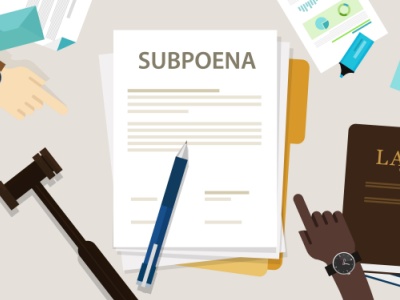 People who become involved in the criminal justice system may struggle to understand the procedures that will be followed and the steps they can take to protect their rights. This is especially true in cases involving grand juries, which follow different procedures than judges and juries in criminal trials. If you have received a subpoena from a grand jury asking you to testify or turn over documents, you may be unsure about how to proceed and what you can do to protect yourself against potential criminal charges. An attorney with experience in these matters can provide invaluable guidance and effective legal representation, ensuring that your rights will be protected.
People who become involved in the criminal justice system may struggle to understand the procedures that will be followed and the steps they can take to protect their rights. This is especially true in cases involving grand juries, which follow different procedures than judges and juries in criminal trials. If you have received a subpoena from a grand jury asking you to testify or turn over documents, you may be unsure about how to proceed and what you can do to protect yourself against potential criminal charges. An attorney with experience in these matters can provide invaluable guidance and effective legal representation, ensuring that your rights will be protected.
A grand jury is a type of jury that investigates alleged crimes to determine whether a person should be formally charged with a criminal offense. It is larger than a trial jury, and it will typically have between 16 and 23 members. Unlike a trial jury, which determines the guilt or innocence of a defendant, a grand jury examines evidence presented by a prosecutor and decides whether to indict a person with criminal charges and proceed to trial. Grand juries may be involved in both state and federal criminal cases.
A person may receive a subpoena from a grand jury asking them to provide testimony or produce documents or other evidence as part of a grand jury's investigation. This does not necessarily mean the person is under suspicion of a crime, and a subpoena may be served to someone who may potentially have information that is pertinent to the investigation. The subpoena compels them to participate in the process, ensuring the grand jury has all the necessary information to make decisions about potential indictments.
If you have been served with a subpoena from a grand jury, it is incredibly important to secure representation from a criminal defense attorney who has experience in grand jury investigations. A lawyer can review a subpoena and provide guidance on whether you may be the target of a criminal investigation or whether the grand jury believes you may be able to provide information about a case.
Your attorney can discuss the case with you, advise you of whether you may potentially face criminal charges, and help you determine what steps to take to protect yourself during a grand jury investigation. Because attorney-client privilege ensures that anything you discuss with your lawyer will be confidential, you can be honest about the facts of your case, including any conduct that could potentially lead to criminal charges.
As you review your case with your attorney, they can help you determine the scope of the investigation, whether other parties may be involved, and what information you may be required to provide to the grand jury. Your lawyer may ask about whether you spoke to an agent who served you with the subpoena and whether you answered any questions or gave statements to government officials. They can also advise you on how to address a subpoena that may be related to a business or partnership and how to gather and submit any requested documents or other information.
If you are being asked to testify before a grand jury, your attorney can advise you on what questions may be asked and what answers you should give. Your lawyer can help you determine whether you should “plead the Fifth” and assert your right to refuse to answer any questions or give any statements that could potentially be incriminating.
Depending on the procedures followed by a state or federal grand jury, your attorney may or may not be present when you provide testimony. While they cannot interrupt the questioning, you can stop your testimony at any time to consult with your lawyer. With proper preparation, your attorney can help you take steps to protect yourself when testifying before a grand jury, ensuring that you will be able to avoid criminal charges if possible.
At Woolf & Ross Law Firm, LLC, we provide representation for people who have received grand jury subpoenas, helping them determine the best ways to protect their rights. Whether you have been asked to turn over documents or testify, we can advise you on the best ways to proceed. We have experience representing clients in both state and federal criminal cases, and we will work with you to build a successful defense strategy. Contact our Connecticut criminal defense attorney at 860-290-8690 to schedule a free consultation and get the legal representation you need.
 50 Founders Plaza
50 Founders Plaza

